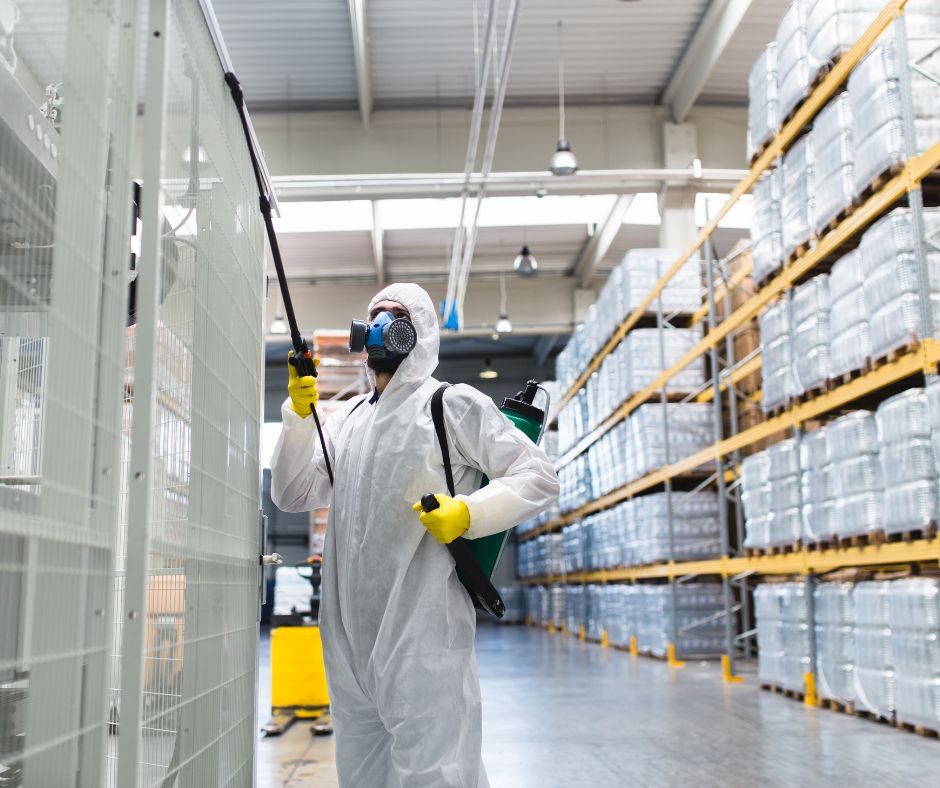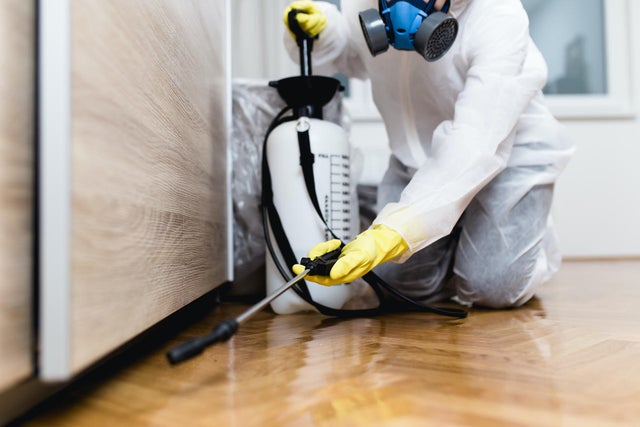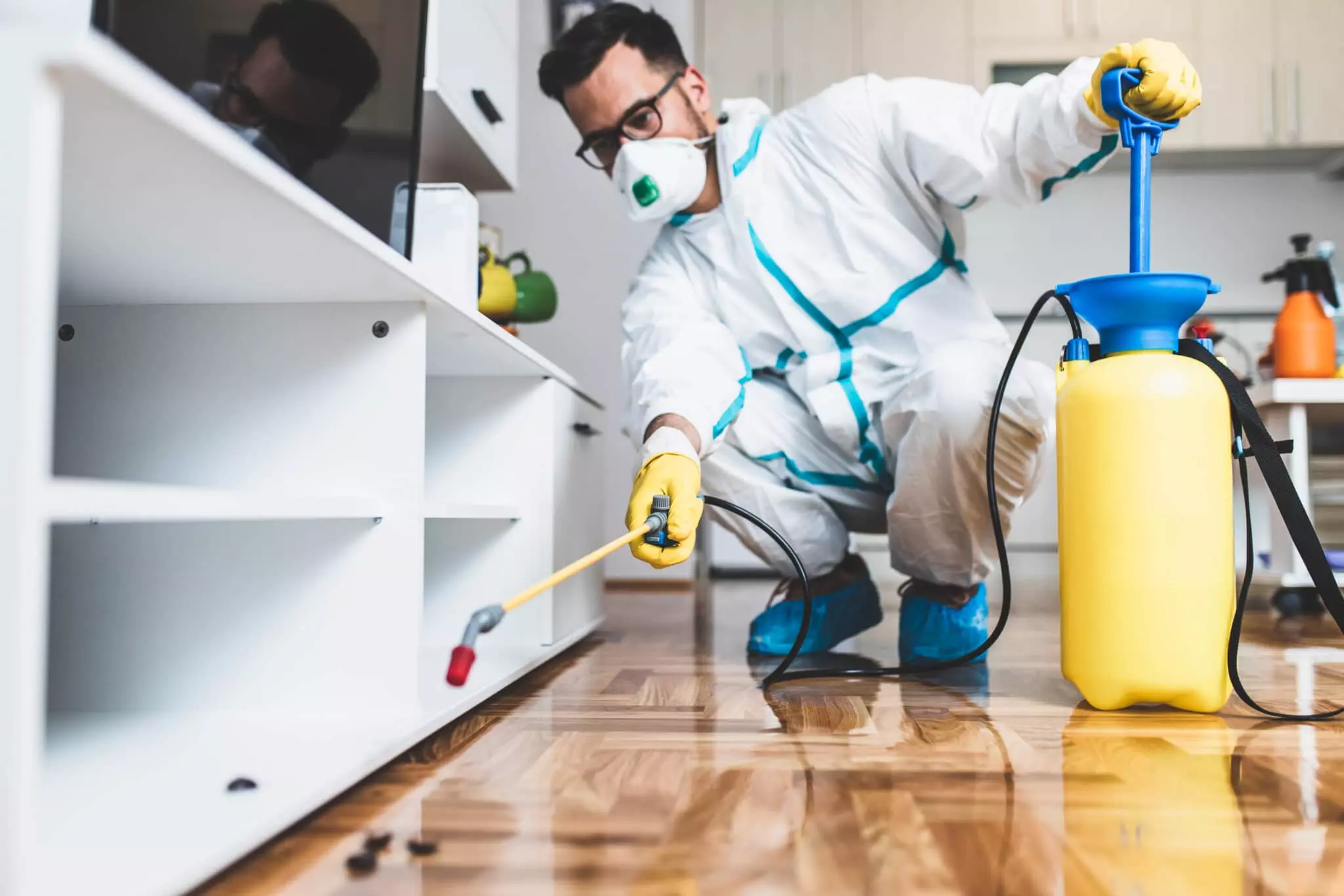Trusted Rodent Control Port Charlotte to Stop Damage to Your Property
Trusted Rodent Control Port Charlotte to Stop Damage to Your Property
Blog Article
Find Out About the most up to date Developments in Bug Control and How to Carry Out Reliable Treatment Solutions
In current years, the area of insect control has witnessed substantial developments, driven by the demand for lasting and reliable treatment solutions. Cutting-edge strategies such as Integrated Bug Management (IPM) integrate environment-friendly exercise with innovative innovation, boosting both effectiveness and ecological responsibility. Furthermore, the combination of clever technologies and do it yourself approaches has encouraged people to deal with insect concerns more efficiently. As we explore these advancements, it becomes vital to comprehend how finest to implement these approaches in numerous setups to achieve ideal outcomes. The ramifications for bug management practices might be transformative.
Eco-Friendly Bug Control Options
In the last few years, the need for eco-friendly parasite control choices has surged as house owners and organizations alike seek sustainable options to conventional chemical treatments. This change is driven by expanding environmental recognition and a desire to decrease the health dangers connected with artificial pesticides.

Environmentally friendly insect control methods include a variety of strategies that focus on the use of natural substances and techniques. Integrated Pest Monitoring (IPM) is one such strategy, incorporating organic, cultural, and mechanical strategies to handle bug populaces while decreasing reliance on chemicals (Wildlife removal services). This holistic technique emphasizes prevention through environment manipulation and the introduction of all-natural killers, therefore cultivating a well balanced community
An additional preferred choice is using botanical chemicals derived from plants, which tend to be much less dangerous to non-target organisms. Products like neem oil and diatomaceous earth have gained traction for their effectiveness in controlling parasites while posing minimal threats to human wellness and the atmosphere.
In addition, exemption techniques, such as securing entry points and maintaining sanitation, play a critical role in green insect management. By embracing these lasting techniques, people and services can properly take care of insects while promoting a healthier earth for future generations.
Smart Innovation in Parasite Administration
Development is reshaping the landscape of parasite management, with smart innovation arising as an essential force in boosting effectiveness and performance - Wildlife removal services. The assimilation of Web of Things (IoT) devices, man-made knowledge (AI), and data analytics is changing how parasite control professionals come close to problems
Smart catches equipped with sensors can identify insect task in real-time, sending out instant signals to drivers. This allows for timely reactions, minimizing damage and reducing the demand for considerable therapies. In addition, AI formulas analyze historical information to forecast insect habits, making it possible for positive treatments based upon ecological problems and infestation patterns.
Drones and automatic lorries are also playing a significant role in pest administration, offering aerial analyses of big locations, determining hotspots, and also distributing targeted therapies. These modern technologies not only simplify operations however also improve safety by restricting human exposure to possibly hazardous chemicals.
In addition, mobile applications equip consumers to monitor insect task and gain access to specialist advice, fostering a collaborative technique to pest monitoring. Generally, the fostering of smart technology is setting a brand-new criterion in pest control, emphasizing data-driven choices and lasting techniques that ultimately profit both professionals and house owners alike.
Integrated Insect Administration Techniques
Integrated Bug Management (IPM) utilizes an all natural strategy to pest control, combining different methods to properly take care of insect populations while minimizing threats to human wellness and the setting. IPM rotates around understanding the pest life cycle, their all-natural opponents, and the ecological community in which they thrive.
One of the essential elements of IPM is checking pest populaces with normal examinations and data collection. This enables the identification of insect limits, establishing when intervention is essential. Cultural practices, such as crop sanitation, turning, and habitat control, are vital in lowering pest frequency and advertising plant wellness.
Mechanical controls, including obstacles and catches, are also crucial in IPM. These techniques can literally eliminate or prevent insects without the usage of chemicals. When necessary, the judicious application of chemical controls is used, focusing on targeted treatments that minimize ecological impact.
Education and partnership amongst stakeholders, consisting of farmers, parasite control specialists, and the neighborhood, are important for the effective application of IPM techniques. By prioritizing lasting methods, IPM not only addresses pest problems yet likewise promotes a much healthier environment.
Biological Control Approaches
Numerous biological control methods are increasingly recognized for their effectiveness in taking care of bug populations while advertising eco-friendly equilibrium. These strategies harness all-natural killers, parasites, and microorganisms to decrease pest numbers without counting on synthetic website link chemicals. The introduction of ladybugs can properly manage aphid populations, while nematodes target soil-dwelling bug larvae.
In addition, the use of microbial chemicals, such as Bacillus thuringiensis (Bt), gives an environmentally friendly option for managing caterpillar bugs. These items especially target pest varieties, reducing injury to valuable insects and pollinators. Moreover, conservation organic control emphasizes boosting habitats for all-natural adversaries, such as birds and helpful pests, thus motivating their presence in farming systems.
Study remains to disclose ingenious approaches within this area, such as making use of scents to interfere with pest breeding patterns or the development of biocontrol agents with genetic modification. Carrying out these approaches can result in sustainable pest management methods that minimize the reliance on chemical interventions, eventually promoting healthier ecosystems. As awareness of these methods grows, they are ending up being essential elements of integrated parasite monitoring (IPM) techniques, find more supplying an equilibrium between effective insect control and environmental stewardship.
Do It Yourself Parasite Control Solutions
As property owners seek efficient means to deal with parasite issues, do it yourself insect control solutions have acquired appeal for their accessibility and cost-effectiveness. These approaches encourage individuals to address invasions utilizing conveniently offered materials and techniques, frequently without the need for expert intervention.

Furthermore, maintaining appropriate hygiene and regular inspections can protect against pest access and nesting (Wildlife removal services). Easy techniques, such as securing fractures, removing food sources, and decluttering, can considerably diminish bug populaces. Traps, both homemade and readily readily available, can additionally supply reliable remedies for monitoring and regulating particular bugs like bugs or rodents

Conclusion
The integration of eco-friendly parasite control choices, smart technology, silverfish pest control and cutting-edge management approaches presents an extensive strategy to reliable pest management. By embracing Integrated Insect Management (IPM) and making use of organic control methods, alongside Do it yourself options, accountable and sustainable insect control can be attained.
Green insect control approaches incorporate an array of techniques that prioritize the usage of natural compounds and methods. Integrated Parasite Monitoring (IPM) is one such technique, incorporating organic, cultural, and mechanical tactics to manage insect populations while lowering reliance on chemicals. As recognition of these strategies grows, they are coming to be essential elements of integrated parasite administration (IPM) approaches, using an equilibrium between reliable parasite control and environmental stewardship.
The combination of green bug control options, wise modern technology, and innovative administration techniques offers a detailed strategy to reliable parasite monitoring. By welcoming Integrated Insect Management (IPM) and using organic control approaches, together with Do it yourself solutions, responsible and sustainable parasite control can be achieved.
Report this page